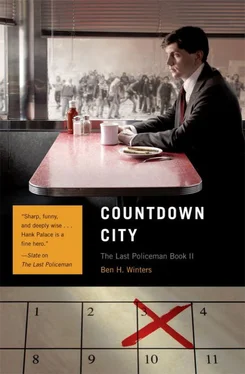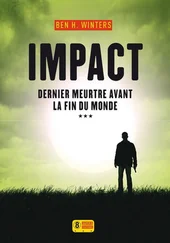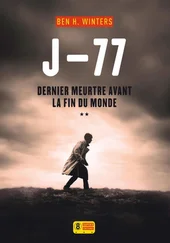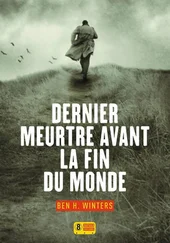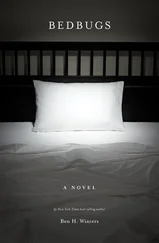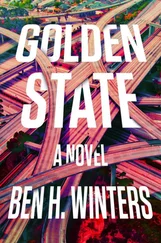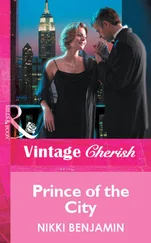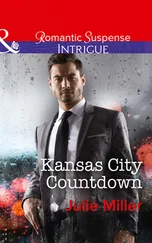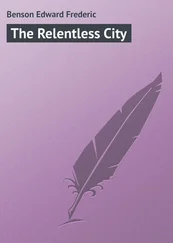“Listen—” I start, and then Nico turns a quarter turn toward me and stares, just for an instant, all the time she needs to tell me very clearly with her eyes and eyebrows to shut up. I do so. This is why I brought her, and I might as well let her do her thing; this is Nico’s element, if ever she had one.
“Look, totally honest with you? This girl that Henry is looking for? Her mother is sick. She’s dying.”
Beau doesn’t say anything, but Sport whistles lightly. “Sucks.”
I follow Nico’s lead. “Yeah,” I say softly. “It’s cancer.”
“Brain cancer,” says Nico, and Sport’s eyes grow wider. Beau’s fingertips remain on the handle of her gun.
“Yeah, she’s got a tumor,” I say. “A chordoma it’s called, actually, at the base of her skull. And because the hospitals are all screwed up, so many doctors are gone, there isn’t much they can do.”
I’m picturing McGully, of course, big vaudeville hands: six months to live… wakka-wakka . It was Grandfather who had the chordoma, though; they’re mostly seen in geriatric patients, but no one here seems likely to know that.
Sport looks at me, then at Beau, who shakes her head.
“No,” she says. “We can’t.”
“All he’s got to do is find her,” says Nico softly, “let this kid know her mom is sick, in case she wants to say goodbye. That’s all. If it’s not possible, we understand.”
“It’s not possible,” says Beau, immediately.
Sport turns to her. “Don’t be a jerk.”
“I’m just following the rules.
“It’s not your mom.”
“Fine,” says Beau abruptly. “You know what? Fuck it.”
She stomps over to the steps and sits down sullenly while Sport walks over to the two on the wall and whispers something to the one with the cigarette, jokingly plucks it from his hands. Sport and the anarchists crack up—one lunges for his cigarette, the other shrugs and turns away—Beau sulks on the steps. They’re just a bunch of kids, these people: goofing around, flirting, fighting, smoking, running their principality.
At last Sport trots back over to us, flashing a small thumbs-up, and I exhale, see Nico smiling from the corner of my eye. We get four hours, Sport tells us, and not a second more.
“And come out through this exit. Okay? Only this exit.”
“Okay,” I say, and Nico says, “Thanks.”
“She uh—” she angles her head toward Beau. “She told her mom she was gay. Because of the asteroid. Radical-honesty time, right? Her mother told her she would burn in hell. So.” She sighs. “I don’t know.”
Beau is still sitting on the steps, glaring at the sky. There are times I think the world is better off in some ways—I do—I think in some ways it’s better off. One of the anarchists slides down from the wall and ambles over, skinny and sloe-eyed, black bandana draped loosely at his collarbone. “Hey, so, four hours, man,” he says. He smells like hand-rolled cigarettes and sweat.
“I told them,” says Sport.
“Cool. And in the meantime, we gotta hold on to your dog.”
The skinny kid reaches out his arms. Nico looks at me—I look at Houdini. I scoop him up, rub his neck, hold him for a long second. He looks into my eyes, then shakes his body and pulls for the ground. I put him back down, and he resumes chewing grass under the watchful eyes of his captors.
“Four hours,” I say, and Nico heaves her duffel bag onto her shoulder, and we’re ready to go.
Once, in high school, as part of a short-lived and ill-fated campaign to gain the attention of a “cool” girl named Alessandra Loomis, I accompanied some friends to a day-long popular-music festival hosted by the Manchester radio station Rock 101. This is like that, what I’m looking at now, standing at the rear exit of Thompson Hall gazing down the long slope toward the main quad. It’s like the rock-fest but to a factor of ten: brightly colored tents and sleeping bags stretch out in all directions, studded by what look like giant shipping cartons, overturned and transformed into baroquely decorated forts. Long snaking lines of drummers move through the crowds, dancing in rhythmic interlocking circles. At the center of the quad is a towering junk-shop sculpture painted in neons and pastels, built of car doors and computer monitors and children’s toys and aquarium parts. Puffs of cigarette and marijuana smoke float up, drifting over the crowds like smoke signals. It’s like a concert with no stage, no bands, no electricity; a concert that’s all audience.
Nico was right. I should have worn shorts.
“So great,” murmurs my sister. She leans back, throws her arms open and closes her eyes, breathing it in—the marijuana smoke, certainly, but all of it, the whole thing. And I am surprised to be feeling how I do, confronted with the massive and chaotic scene—not at all how I felt driving the long hour back to Concord after a day at the Rock 101 festival, my ears ringing alternately with Alessandra Loomis’s kind but unequivocal demurrals and Soundgarden’s egregious cover of “Buckets of Rain.”
We make our way down the slope and into the crowd. I unknot my tie and take it off. Nico laughs. “There you go, Starsky,” she says. “Deep cover.”
“Shut up,” I say. “Where are we going?”
“We gotta find my man Jordan,” says Nico. “He’s got this place wired.”
“Okay,” I say. “And where’s Jordan?”
“In Dimond,” she says. “The library. If his committee is sitting. Follow me.”
I follow her down into the wonderland, trotting a few paces behind as she picks a route through the crowded tents and revelers. Nico pauses here and there to say hello to people she knows, ducking into one tent to hug a fine-boned girl in a miniskirt, jog bra, and elaborate Native American headdress.
At the far end of the main quad the crowd thins and we pick up a narrow winding path and follow it into and out of a stand of thin sapling elms. After a few minutes of walking, the noises of the drums and the singing have faded, and we are wandering through the campus, passing nondescript low-slung brick academic buildings—Geology department, Kinesiology, Mathematics. After ten minutes or so we come out onto a plaza where there’s just a single drummer, tapping away all on his own, wearing sweatpants and a Brooklyn Dodgers jersey. The chiseled brick cornerstone says PERFORMING ARTS, and a sandwich board is propped up at the base of the wide steps, between the columns, advertising a lecture: “The Asteroid as Metaphor: Collision, Chaos, and Perceptions of Doom.”
Nico peers at the sign.
“Is this where we’re going?” I ask.
“Nope.”
“Do you know where we’re going?”
“Yup,” she says, and we keep walking. I’m picturing Brett Cavatone making his way through the campus in his heavy policeman boots, looking for Julia Stone just as I am now. How did he circumvent the perimeter guards, I wonder? If I had to guess, his stratagem was more tactile than mine, more direct. He would have cased the campus, selected the least-defended of the various checkpoints, and employed overwhelming but nonlethal force to get past one of these skinny twenty-somethings playing tough guy.
I keep following Nico, who is still lugging her heavy duffel bag, deeper and deeper into the bewildering campus. The paths roll back on themselves, the woods grow thick, then thin out again. On a volleyball court outside the athletic complex is a row of young people clutching Civil War–style bayonets, practicing their form: someone yells “Charge!” and they charge, sprinting full bore, lunging with bayonets extended, stopping on a line, laughing, retreating.
I’m growing more and more concerned about Nico’s sense of direction every time she pauses at a forking path and chews on her lip for a moment before plunging forward.
Читать дальше
